Graduate Summer Fieldwork Grants
From 2016-2023, as part of its Inequality & Human Rights project, the Rapoport Center awarded grants to graduate students to support their fieldwork on related themes. In 2024, the Rapoport Center began offering fieldwork grants on the thematic priorities of the Sissy Farenthold Fund for Peace and Social Justice: reproductive justice, environmental justice, and peace. Read below about current and former recipients and their projects.
Learn more about applying for Graduate Fieldwork Grants.
2024 Recipients
Paulina Cottom — PhD Student, Sociology
Project Title — Catastrophe: Immobility in the Context of Climate Migration
Thematic area: Environmental justice

Yohad Zacarías S. — PhD Student, History
Project Title — In the name of progress: Rural electrification, transnational development, State and cooperatives. Chile, 1945-1973
Thematic area: Environmental justice

My doctoral project will focus on the history of rural electrification and the environment in Chile during the Latin American Cold War. Between 1945 and 1973, ENDESA, Chile’s national electricity company, received support from US development institutions to begin a rural electrification project in the Chilean countryside. Using credits from the Export-Import Bank in Washington, the Inter-American Development Bank (IDB), and the US National Rural Electric Cooperatives Association (NRECA), ENDESA provided money to small rural cooperatives to build power lines and connect electricity to people’s homes to propel agricultural development. In parallel, Chilean technicians traveled to the US to exchange knowledge about electrification while engineers from the Tennessee Valley Authority (TVA) visited Chile to do the same. In this way, the history of rural electrification in Chile became a transnational affair set against the backdrop of the global Cold War. I will pay special attention to the Chilean cooperatives and how they influenced the Chilean state’s policies concerning electrification and the technological relations between Chile and the United States that propelled such projects. In doing so, my project will contribute to the history of transnational technical expertise, underscore everyday adaptations of technology and environment, and rethink the meaning of Latin American developmentalism. Ultimately, given its relevance as an object of study and relationship with the Chilean and Latin-American agenda on environmental conflicts, transnational networks, and state and local organizations, it will contribute to a broader public discussion about environmental justice and to a larger personal goal of promoting environmental history to both academic and public audiences.
2023 Recipients
Samira Bashar — PhD Candidate, Community and Regional Planning
Project Title — Right to the Waterscape: (Re)Production of Urban Socionature through Everyday Planning Practices in Chattogram, Bangladesh

This study centers on the placemaking practices of marginalized urban fisher communities in Chattogram, Bangladesh. Seeking to foster resiliency and adaptability for a dystopian climate future, waterscape planning in Bangladesh fails to acknowledge and account for the situated histories, lived experiences, and relationships with waterscapes that constitute placemaking in waterfront communities. Residents in these long-established waterfront communities are marginalized and excluded from planning processes, while rights to shape waterscapes are constrained by complex power dynamics defined by class, gender, religion, and caste. In the case of Chattogram, a coastal city in southeastern Bangladesh, the waterscape has been subjected to various infrastructure initiatives that aim to create a resilient city in the face of climate change. These initiatives in Chattogram have come at a great cost to marginalized waterfront fisher communities. However, these communities are more than simply victims of new infrastructure developments instead reclaim their rights by quietly encroaching on the urban waterscapes. Acknowledging that every planning decision is inherently political in nature and thus can reproduce unequal outcomes, this research aims to explore how such communities negotiate and navigate the dominant waterscape planning paradigm to claim their right to the waterscape in Chattogram. Through a combination of ethnographic and participatory methods, this multi-site study of three urban fisher communities in varying waterscapes–along canal, river, and seacoast–in Chattogram seeks to document the placemaking practices that contribute to producing contested waterscapes. The fine-grained empirical focus on the everyday practices of waterside fisher communities will contribute to a broader understanding of the socio-spatial reproduction of waterscapes, furthering efforts to validate and incorporate local knowledge into a new urban planning paradigm to foster more situated, equitable, and democratic forms of waterscape planning practices in Bangladesh.
Luciana Barretto Lemos — PhD Candidate, Latin American Studies
Project Title — Rethinking Water Planning through Indigenous Participatory Water Management Initiatives in the Brazilian Amazon

The human rights to safe water and proper sanitation were officially recognized by the United Nations General Assembly and the Human Rights Council in 2010. However, despite Brazil’s commitment to the UN resolution, almost 35 million people in the country still lack access to treated water, and around 100 million do not have access to proper sanitation services. Social and environmental challenges, such as insufficient investments in infrastructure, as well as the effects of climate change and water pollution caused by illegal mining and agricultural activities, have contributed to the intensification of the existing water crisis. The lack of access to treated water in Brazil is particularly harmful to vulnerable populations, such as the indigenous communities residing in the northern region of the country. Striving to address these inequalities, my research project “Rethinking Water Planning through Indigenous Participatory Water Management Initiatives in the Brazilian Amazon” aims to explore how traditional indigenous knowledge and cultural practices pertaining to water can inform decision-making processes and the planning of water resources. My project draws from the disciplines of Critical Planning Theory, Water Governance, and Indigenous Epistemologies to investigate the indigenous beliefs and practices related to water, as well as to analyze the issues related to water access in indigenous communities in the Brazilian Amazon.This study will produce a long-lasting impact on understanding implications of indigenous water epistemologies for alternate modes of water management planning and governance.
María Ximena Davila — PhD Candidate, Sociology
Project Title — River, Body, Crises: Reproductive Violence and Social Reproduction in the Midst of Toxic Landscapes
 This project seeks to trace the relationship between social reproduction, reproductive (in)justice, and the multiple forms of violence— environmental, economic, humanitarian—taking place in Montes de Maria. More particularly, I attempt to examine the gendered harms produced by water contamination as well as women’s efforts to preserve rivers as sources of vital and material well-being. This project addresses two main questions. First, it explores how environmental degradation, and its connection with other forms of violence persisting in Montes de María, affect reproductive life. Contamination of water sources has led to severe reproductive health issues for women who rely on rivers for their daily activities: hives, rashes, and allergies in their reproductive organs are the marks of a slow kind of violence. Similarly, given the significance of the river as a site of gendered social reproduction—these are spaces where many women perform care-based tasks— water pollution has affected women’s routine livelihood practices, posing challenges to the very act of taking care of themselves and others. Emphasizing how these grievances manifest in daily life, this study draws attention to the unexplored links between care work, gender inequality, and reproductive violence in contexts of environmental decay.
This project seeks to trace the relationship between social reproduction, reproductive (in)justice, and the multiple forms of violence— environmental, economic, humanitarian—taking place in Montes de Maria. More particularly, I attempt to examine the gendered harms produced by water contamination as well as women’s efforts to preserve rivers as sources of vital and material well-being. This project addresses two main questions. First, it explores how environmental degradation, and its connection with other forms of violence persisting in Montes de María, affect reproductive life. Contamination of water sources has led to severe reproductive health issues for women who rely on rivers for their daily activities: hives, rashes, and allergies in their reproductive organs are the marks of a slow kind of violence. Similarly, given the significance of the river as a site of gendered social reproduction—these are spaces where many women perform care-based tasks— water pollution has affected women’s routine livelihood practices, posing challenges to the very act of taking care of themselves and others. Emphasizing how these grievances manifest in daily life, this study draws attention to the unexplored links between care work, gender inequality, and reproductive violence in contexts of environmental decay.
Jordan French — PhD Candidate, Civil, Architectural, and Environmental Engineering
Project Title — Environmental Justice Implications of Electric Vehicle Manufacturing

While electric vehicles are heralded as a fundamental tool for sustainable energy transitions, the environmental justice dimensions of their manufacturing merit further interrogation. This study applies interdisciplinary methods to understanding the environmental and equity impacts of electric vehicle manufacturing in Texas, with a focus on air quality in the overburdened and underrepresented communities adjacent to an electric vehicle manufacturing facility and a proposed lithium refinery. This research scope includes surveys to understand the priorities and perspectives of these impacted communities, as well as air quality monitoring networks and permit analyses to evaluate the environmental impact of the facilities in question. Collaborative relationships with local grassroots organizations are central to this work, to ensure that community objectives are genuinely prioritized and research findings are accessible to impacted stakeholders.
Alice Kurima Newberry — PhD Candidate, Anthropology
Project Title — Mapping Decolonial Hope: Lessons of Liberation from Yuimāru and Shimā Foodways
 How do we tend to radical care and healing in the midst of militarized and imperial violence? Facing a dual-coloniality under US and Japan, the Ryukyus and its diaspora offer necessary lessons surrounding decolonial hope and Indigenous survivance. Through food stories, archives, Indigenous methodologies, participatory research, and ethnography, my project Mapping Decolonial Hope offers recipes of resiliency and self-determination that complicate identity, narratives of liberation, and community relationships in the wake of structural violences. More than a chain of national security “strategically positioned” islands in the Pacific, the Ryukyus and their food stories theorize methods of care that envision alternative futures and understandings of hope.
How do we tend to radical care and healing in the midst of militarized and imperial violence? Facing a dual-coloniality under US and Japan, the Ryukyus and its diaspora offer necessary lessons surrounding decolonial hope and Indigenous survivance. Through food stories, archives, Indigenous methodologies, participatory research, and ethnography, my project Mapping Decolonial Hope offers recipes of resiliency and self-determination that complicate identity, narratives of liberation, and community relationships in the wake of structural violences. More than a chain of national security “strategically positioned” islands in the Pacific, the Ryukyus and their food stories theorize methods of care that envision alternative futures and understandings of hope.
Yenibel Ruiz Mirabal — PhD Candidate, Spanish and Portuguese
Project Title — Subjective Cartographies: Transmigrant Venezuelan Women of Color and Place-making on the US-Mexico and Venezuela-Colombia Borders”
 This project situates Venezuelan migrant women of color who cross borders through las trochas, a network of unsanctioned dirt roads, as essential to and transformative of the imagined and reality of the border space. The project interrogates the representations of the informal spaces of these borders and the scripting of Venezuelan migrant women of color by modern state narratives. Discourses reinforced by media and official institutions silence the multiple subjectivities created by Venezuelan migrants. Moreover, these narratives deny migrants’ fundamental human rights and perpetuate xenophobia and discrimination against them. This work challenges and reimagines these state-backed cultural consensuses precisely by locating Venezuelan migrants as self-determining humans with a degree of social and political power in the border region. Moreover, this research challenges others to recognize the humanity of these women. Her methodological approach relies on oral histories, journalism materials such as photos and film, and social media. With the Rapoport Center support, she conducted a series of oral history interviews with Venezuelan immigrant women of color in the US-Mexico Border. She documented their first-hand experiences: their obstacles, their negotiations, their feelings, and their empowerment within the migratory process. Her theoretical framework draws from cultural studies, gender, border studies, and critical race theory.
This project situates Venezuelan migrant women of color who cross borders through las trochas, a network of unsanctioned dirt roads, as essential to and transformative of the imagined and reality of the border space. The project interrogates the representations of the informal spaces of these borders and the scripting of Venezuelan migrant women of color by modern state narratives. Discourses reinforced by media and official institutions silence the multiple subjectivities created by Venezuelan migrants. Moreover, these narratives deny migrants’ fundamental human rights and perpetuate xenophobia and discrimination against them. This work challenges and reimagines these state-backed cultural consensuses precisely by locating Venezuelan migrants as self-determining humans with a degree of social and political power in the border region. Moreover, this research challenges others to recognize the humanity of these women. Her methodological approach relies on oral histories, journalism materials such as photos and film, and social media. With the Rapoport Center support, she conducted a series of oral history interviews with Venezuelan immigrant women of color in the US-Mexico Border. She documented their first-hand experiences: their obstacles, their negotiations, their feelings, and their empowerment within the migratory process. Her theoretical framework draws from cultural studies, gender, border studies, and critical race theory.
2022 Recipients
Elybeth Alcantar — PhD Candidate, Geography and the Environment
Project Title — Ecological Knowledges of Mixtec Children and Adults in San Mateo Etlatongo, Oaxaca
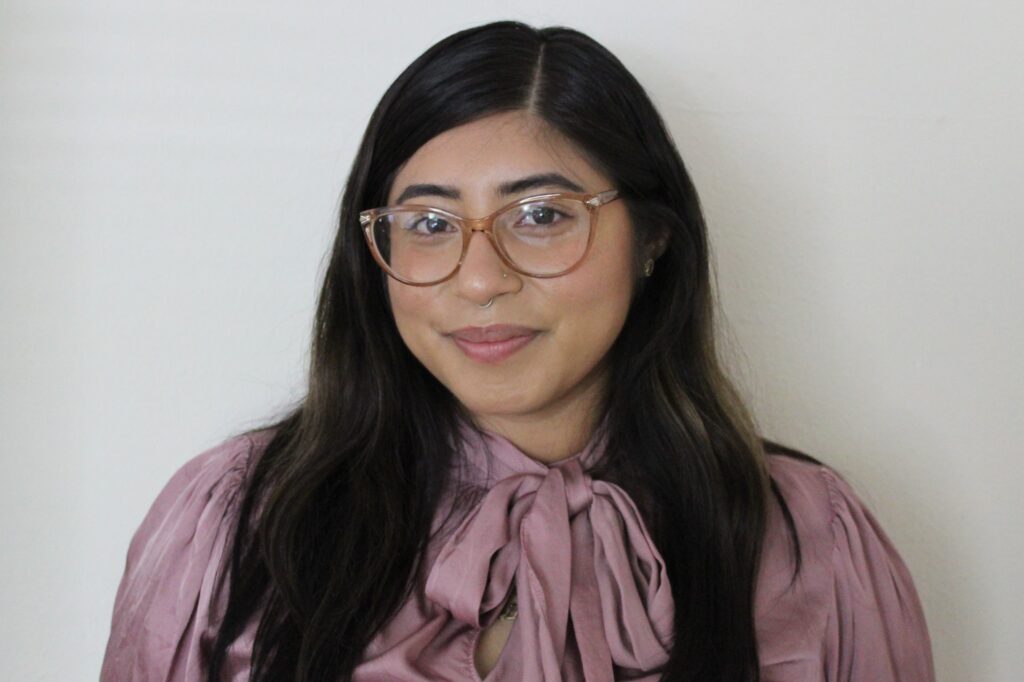 Elybeth Alcantar’s research centers on the Mixtec communities of the Mixteca Alta region of Oaxaca, Mexico. In 2016, a violent confrontation between Mexican Federal Preventive Police and the Mixtec community resulted in the Nochixtlán Massacre of 2016. Given the lasting impact of this human rights violation, there have been several community-based projects, and state-backed attempts, to address the aftermath of the Nochixtlán Massacre through development projects. This project draws upon the methods of ethnography and participatory mapping to build upon and engage with Indigenous cartographies, political ecologies, and Native ontologies of space in the Mixtec community of San Mateo Etlatongo. This research aims to reveal the ways in which Mixtec communities are creating their own projects to defend knowledge, ecologies, and Indigenous sovereignty in the Mixteca Alta region of Oaxaca, Mexico in the wake of the Nochixtlán conflict of 2016.
Elybeth Alcantar’s research centers on the Mixtec communities of the Mixteca Alta region of Oaxaca, Mexico. In 2016, a violent confrontation between Mexican Federal Preventive Police and the Mixtec community resulted in the Nochixtlán Massacre of 2016. Given the lasting impact of this human rights violation, there have been several community-based projects, and state-backed attempts, to address the aftermath of the Nochixtlán Massacre through development projects. This project draws upon the methods of ethnography and participatory mapping to build upon and engage with Indigenous cartographies, political ecologies, and Native ontologies of space in the Mixtec community of San Mateo Etlatongo. This research aims to reveal the ways in which Mixtec communities are creating their own projects to defend knowledge, ecologies, and Indigenous sovereignty in the Mixteca Alta region of Oaxaca, Mexico in the wake of the Nochixtlán conflict of 2016.
Md Robayt Khondoker — PhD Candidate, Anthropology
Project Title — The Social Reintegration of Former Armed Bandits in the Sundarban region of Bangladesh
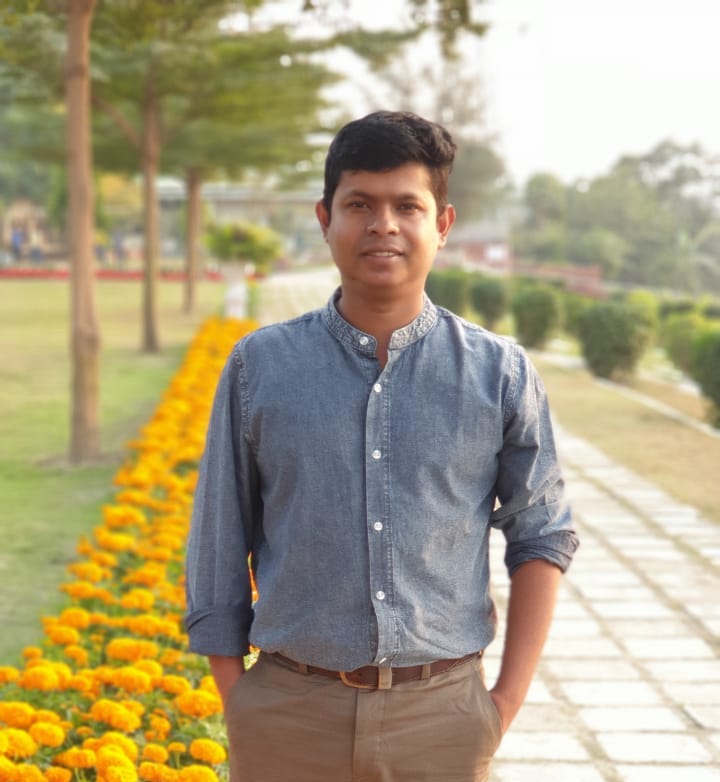 My research explores the kinds of social reorganization that attend the reintegration of former armed bandits in the Sundarbans region of Bangladesh. The Sundarbans is the largest remaining mangrove forest in the world, offers a sanctuary and safe harbor for the bandits, locally known as Dakat. Since 2016, most of the dakat groups surrendered and returned to their families. Subsequently, the government has taken initiatives to reintegrate the former dakats into mainstream society. In the Sundarbans, one cannot understand the reintegration process of former dakats without attending to the wide-ranging transformations that are taking place in and around the region. Over the last few years, the region has seen an unprecedented number of projects, including massive infrastructures like Rampal power plant and a new wave of conservation interventions. These programs have further complicated people’s lives by bringing the margins into the fold of governmental power and permanently changing land and property relations. This study will employ ethnography to explore the political tensions around reintegration and the everyday lives of dakats who have returned to their community. A Rapoport fellowship will help me lay the ground for future ethnographic work by allowing me to both establish a network amongst retired dakats and conduct interviews both with dakats themselves and the other actors impacted by the reintegration process.
My research explores the kinds of social reorganization that attend the reintegration of former armed bandits in the Sundarbans region of Bangladesh. The Sundarbans is the largest remaining mangrove forest in the world, offers a sanctuary and safe harbor for the bandits, locally known as Dakat. Since 2016, most of the dakat groups surrendered and returned to their families. Subsequently, the government has taken initiatives to reintegrate the former dakats into mainstream society. In the Sundarbans, one cannot understand the reintegration process of former dakats without attending to the wide-ranging transformations that are taking place in and around the region. Over the last few years, the region has seen an unprecedented number of projects, including massive infrastructures like Rampal power plant and a new wave of conservation interventions. These programs have further complicated people’s lives by bringing the margins into the fold of governmental power and permanently changing land and property relations. This study will employ ethnography to explore the political tensions around reintegration and the everyday lives of dakats who have returned to their community. A Rapoport fellowship will help me lay the ground for future ethnographic work by allowing me to both establish a network amongst retired dakats and conduct interviews both with dakats themselves and the other actors impacted by the reintegration process.
Stephanie Childress — PhD Candidate, American Studies
Project Title — Violence and Inequality in the Transition from Oil to Green Energy
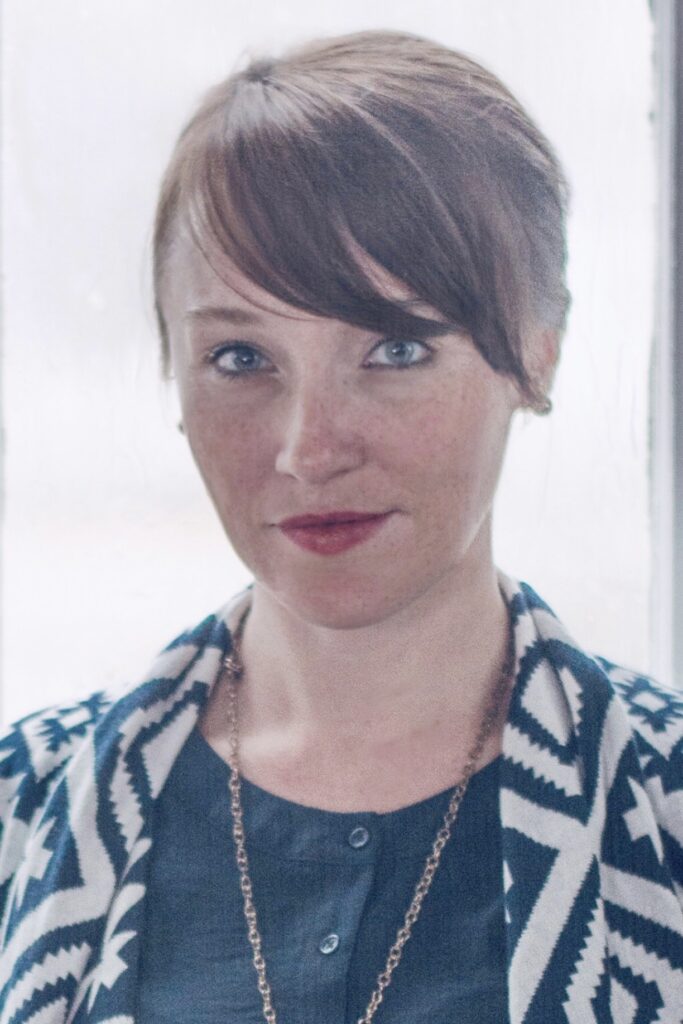 With the fieldwork grant from the Rapoport Center, I will be visiting community archives and conducting oral history interviews with residents and workers at wind farm construction sites in Texas. I have identified local conflicts generated from the construction of new wind projects that correlate to histories of labor disputes and racial violence that occurred during the region’s oil booms in the early 20th century. My fieldwork will focus on memories of oil production and the construction of new green energy projects, especially labor relations, energy inequalities, landowner rights, and cultures of violence and exclusion. At the intersection of scholarship on climate change and energy injustice, this work illuminates the context of the climate crisis by interpreting the past’s unsustainable practices and questions the potential for economic, energy, and racial justice under the same systems of capitalism that operated and managed natural resource production.
With the fieldwork grant from the Rapoport Center, I will be visiting community archives and conducting oral history interviews with residents and workers at wind farm construction sites in Texas. I have identified local conflicts generated from the construction of new wind projects that correlate to histories of labor disputes and racial violence that occurred during the region’s oil booms in the early 20th century. My fieldwork will focus on memories of oil production and the construction of new green energy projects, especially labor relations, energy inequalities, landowner rights, and cultures of violence and exclusion. At the intersection of scholarship on climate change and energy injustice, this work illuminates the context of the climate crisis by interpreting the past’s unsustainable practices and questions the potential for economic, energy, and racial justice under the same systems of capitalism that operated and managed natural resource production.
Jaime Hsu — PhD Candidate, Sociology
Project Title — Caring for Toxins: Gendered Care in Chronic Pollution
 The oil and petrochemical industries in the American South have received much academic and public attention in perpetuating environmental and racial injustice. This study aims to contribute to the debate by centering on the gendered processes that may shape the ways in which individuals think about or experience industrial pollution on the ground. Building on feminist and environmental sociology, this project foregrounds women’s experiences in a rural, industrial town of the American South. It explores how women make sense of their care work for their families and the community in the context of industrial pollution. Through a combination of ethnographic observations and in-depth interviews of women in this community, this study seeks to unpack the meanings and potential consequences of gendered processes and inequality that complicate individual understandings of environmental inequality, health, and risks.
The oil and petrochemical industries in the American South have received much academic and public attention in perpetuating environmental and racial injustice. This study aims to contribute to the debate by centering on the gendered processes that may shape the ways in which individuals think about or experience industrial pollution on the ground. Building on feminist and environmental sociology, this project foregrounds women’s experiences in a rural, industrial town of the American South. It explores how women make sense of their care work for their families and the community in the context of industrial pollution. Through a combination of ethnographic observations and in-depth interviews of women in this community, this study seeks to unpack the meanings and potential consequences of gendered processes and inequality that complicate individual understandings of environmental inequality, health, and risks.
2021 Recipients
Faith Deckard — PhD Candidate, Sociology
Project Title — Doing Bond Together: Support Networks and the Multiple Costs of Affording Bail
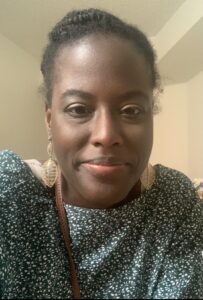 While the crisis of mass incarceration has taken center stage in today’s national debates, less understood is the cash bail system which extracts millions of dollars from already financially insecure individuals and their social networks following arrest. Bail in the United States refers to the practice of releasing defendants from custody before their hearing, on payment of bail, which is money to the court which may be refunded if defendants appear at trial. Because defendants disproportionately come from low-income backgrounds and often cannot afford the full court-set bond amount for release, they instead seek out commercial bail bond agreements where they pay a portion of the total bail amount, typically 10%, as a nonrefundable fee to a bail bondsman (a private citizen working for a for-profit bonding company). As few low income defendants have the resources to enter bail bond agreements on their own, many rely heavily on cosigners—usually a family member, romantic partner, or close friend (Page et al. 2019). Likely to be under similar financial constraints, proponents of bail reform have argued that the cash bail system disproportionately drains resources from low-income communities (Neal 2012). Yet, we know very little about how this structured extraction is experienced on the ground, or how it shapes the social relationships, economic lives, and health profiles of those navigating the system. Through a combination of ethnographic observation and in-depth interviews, this study seeks to systematically unpack the process of meeting bail, paying close attention to who beyond the defendant becomes ensnared in the bond trap- when, why, and to what consequence? In doing so, this study also aims to assess how networks of social support are activated, transformed, and sustained or broken in the face of justice induced, yet private sector mediated financial extraction and surveillance.
While the crisis of mass incarceration has taken center stage in today’s national debates, less understood is the cash bail system which extracts millions of dollars from already financially insecure individuals and their social networks following arrest. Bail in the United States refers to the practice of releasing defendants from custody before their hearing, on payment of bail, which is money to the court which may be refunded if defendants appear at trial. Because defendants disproportionately come from low-income backgrounds and often cannot afford the full court-set bond amount for release, they instead seek out commercial bail bond agreements where they pay a portion of the total bail amount, typically 10%, as a nonrefundable fee to a bail bondsman (a private citizen working for a for-profit bonding company). As few low income defendants have the resources to enter bail bond agreements on their own, many rely heavily on cosigners—usually a family member, romantic partner, or close friend (Page et al. 2019). Likely to be under similar financial constraints, proponents of bail reform have argued that the cash bail system disproportionately drains resources from low-income communities (Neal 2012). Yet, we know very little about how this structured extraction is experienced on the ground, or how it shapes the social relationships, economic lives, and health profiles of those navigating the system. Through a combination of ethnographic observation and in-depth interviews, this study seeks to systematically unpack the process of meeting bail, paying close attention to who beyond the defendant becomes ensnared in the bond trap- when, why, and to what consequence? In doing so, this study also aims to assess how networks of social support are activated, transformed, and sustained or broken in the face of justice induced, yet private sector mediated financial extraction and surveillance.
Blanca-Azucena Pacheco — PhD Candidate, Latin American Studies
Project Title — Public Health, Indigeneity and Human Rights: The Case of the Xinka Pueblo in Southeastern Guatemala
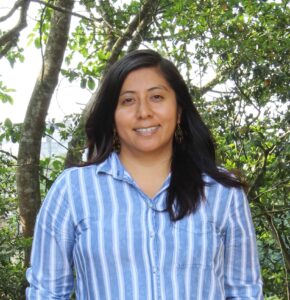 My dissertation centers on the Xinka Pueblo in southeastern Guatemala. Just two decades ago, the Xinka were considered on the brink of cultural disappearance. This non-Maya Indigenous group remained without official recognition by the Guatemalan government until the 1995 Accord on the Identity and Rights of Indigenous Peoples. Subsequently, thousands of people have reclaimed their Indigenous Xinka heritage in what has become an influential identity and cultural revitalization movement. A fundamental aspect of the Xinka identity is the continual use of Indigenous medicinal practices. Healing practices are such an important feature of Xinka culture that community leaders and traditional medicine practitioners are mobilizing to preserve this knowledge. Given the lack of public health infrastructure and services in the region, the preservation of this knowledge is critical for the collective physical and cultural survival of the Xinka people.
My dissertation centers on the Xinka Pueblo in southeastern Guatemala. Just two decades ago, the Xinka were considered on the brink of cultural disappearance. This non-Maya Indigenous group remained without official recognition by the Guatemalan government until the 1995 Accord on the Identity and Rights of Indigenous Peoples. Subsequently, thousands of people have reclaimed their Indigenous Xinka heritage in what has become an influential identity and cultural revitalization movement. A fundamental aspect of the Xinka identity is the continual use of Indigenous medicinal practices. Healing practices are such an important feature of Xinka culture that community leaders and traditional medicine practitioners are mobilizing to preserve this knowledge. Given the lack of public health infrastructure and services in the region, the preservation of this knowledge is critical for the collective physical and cultural survival of the Xinka people.
This project examines the complex relationship between the Xinka communities and the Guatemalan public health system. Using an intercultural health framework this investigation examines the everyday ways in which Xinka peoples negotiate, challenge and strategically utilize the public health system and traditional medicines to meet their health care needs. Furthermore, this work provides a health needs evaluation of the southeastern region through qualitative and quantitative data collection.
2020 Recipients
Due to the COVID-19 pandemic, these awards were deferred until the grantees were able to travel to conduct their fieldwork.
Alison Coffey — PhD Candidate, Sociology
Project Title — Climate adaptation, flood risk, and inequality in Miami, Florida
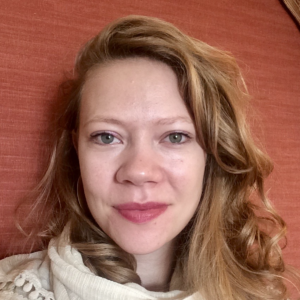 Estimates suggest that within the next 80 years, the homes of more than 13 million people in coastal areas of the United States will be inundated due to rising sea levels. This scenario will upend lives at a massive scale, raising important questions about the social consequences of climate change, including who is at risk, who will receive protection through adaptation interventions, and who will be displaced. Miami, Florida is known as the epicenter of sea level rise in the U.S., and is among the most climate-vulnerable cities in the world. While in some locales the impacts of climate change are still imperceptible, Miami already experiences frequent and significant flooding, making it an important case for understanding how climate change impacts social life and existing social inequalities. While we might expect to see a retreat from the coast in this context, in the last five years Miami has instead seen a waterfront real estate boom and continued population growth. Explaining why this is requires an understanding of how risk is distributed across urban space and the ways in which different groups perceive, experience, and respond to these risks. Through in-depth interviews with residents of different neighborhoods in the Miami area, as well as urban development stakeholders, this research investigates local perceptions of risk, the social and material burdens that flood risk designations create for different groups of residents, and their adaptive responses (individual and collective) to living in the flood zone. As such, this research seeks to contribute to an emerging body of knowledge about the impacts of climate change on socio-economic inequality, with attention to the lived experiences of people affected by rising seas.
Estimates suggest that within the next 80 years, the homes of more than 13 million people in coastal areas of the United States will be inundated due to rising sea levels. This scenario will upend lives at a massive scale, raising important questions about the social consequences of climate change, including who is at risk, who will receive protection through adaptation interventions, and who will be displaced. Miami, Florida is known as the epicenter of sea level rise in the U.S., and is among the most climate-vulnerable cities in the world. While in some locales the impacts of climate change are still imperceptible, Miami already experiences frequent and significant flooding, making it an important case for understanding how climate change impacts social life and existing social inequalities. While we might expect to see a retreat from the coast in this context, in the last five years Miami has instead seen a waterfront real estate boom and continued population growth. Explaining why this is requires an understanding of how risk is distributed across urban space and the ways in which different groups perceive, experience, and respond to these risks. Through in-depth interviews with residents of different neighborhoods in the Miami area, as well as urban development stakeholders, this research investigates local perceptions of risk, the social and material burdens that flood risk designations create for different groups of residents, and their adaptive responses (individual and collective) to living in the flood zone. As such, this research seeks to contribute to an emerging body of knowledge about the impacts of climate change on socio-economic inequality, with attention to the lived experiences of people affected by rising seas.
Upasana Garnaik — PhD Candidate, Sociology
Project Title — Navigating the Legal Terrain: Property Rights of Women in Urban India
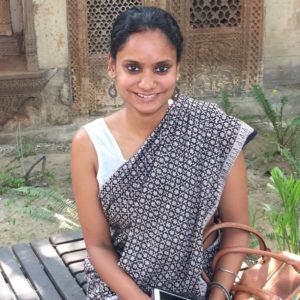 Legal property rights of women remains an urgent and critical entry point to women’s empowerment in South Asia (Agarwal, 1994) as it enormously shapes women’s social and economic lives. World Bank (2013) reports that property ownership not only has a positive association with female participation in the labor force but also affects and controls women’s ability to access credit and invest. In rapidly urbanizing, developing economies such as India, where property values and housing rentals are skyrocketing, owning a house has become a primary concern. Women’s access to property in India, which is primarily accessible through inheritance and matrimonial laws paints a gloomy picture. Exclusion from inheriting and owning property serves to amplify the precarity of women in situations of marital disputes and in abusive marriages. By undertaking a qualitative study of legal property, I ask what are women’s experiences of the legal system in family property disputes? Consequently, how might these experiences shape the meanings women attach to property and do these meanings shift as they go through the institutional life of the law? Finally, does class have a moderating effect on the experiences of women entangled in familial property disputes? Law as an important institution for socio-economic negotiations is not only adjudicating cases involving women, but also constantly shaping gender norms. The law may or may not serve the interests of women as it operates with its own set of gendered assumptions, albeit hidden. Through my research, I want to uncover these everyday mechanisms through which gendered subjects are constituted through the law and how the law operates in actuality.
Legal property rights of women remains an urgent and critical entry point to women’s empowerment in South Asia (Agarwal, 1994) as it enormously shapes women’s social and economic lives. World Bank (2013) reports that property ownership not only has a positive association with female participation in the labor force but also affects and controls women’s ability to access credit and invest. In rapidly urbanizing, developing economies such as India, where property values and housing rentals are skyrocketing, owning a house has become a primary concern. Women’s access to property in India, which is primarily accessible through inheritance and matrimonial laws paints a gloomy picture. Exclusion from inheriting and owning property serves to amplify the precarity of women in situations of marital disputes and in abusive marriages. By undertaking a qualitative study of legal property, I ask what are women’s experiences of the legal system in family property disputes? Consequently, how might these experiences shape the meanings women attach to property and do these meanings shift as they go through the institutional life of the law? Finally, does class have a moderating effect on the experiences of women entangled in familial property disputes? Law as an important institution for socio-economic negotiations is not only adjudicating cases involving women, but also constantly shaping gender norms. The law may or may not serve the interests of women as it operates with its own set of gendered assumptions, albeit hidden. Through my research, I want to uncover these everyday mechanisms through which gendered subjects are constituted through the law and how the law operates in actuality.
Samuel Law — PhD Candidate, Anthropology
Project Title — Constructing Urban Autonomy: Communal Responses to Inequality in Mexico City’s Peripheries
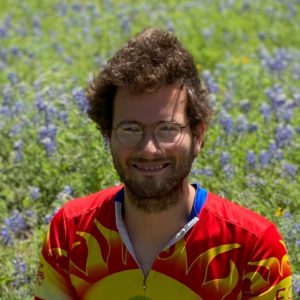 My research explores how the construction of autonomous communities is pursued as a strategy by the urban poor to confront conditions of precarity. As rapid urbanization outstrips the capacity of existing urban infrastructure, many find themselves living precarious lives in urban peripheries, particularly in the megacities of the Global South. Struggling to get by on the margins of economic and political life, precarity takes the form of everyday struggles for basic amenities like housing, water, sustenance, safety, health care, education, and employment. This project expands understandings of responses to urban precarity by investigating a grassroots social movement in Mexico City with over 15,000 members that seeks to establish dignified lives not by making demands of the state, but by building autonomous communities and developing practices of self-organization. Through participant observation and oral history, this research illuminates how these practices – from communal management of security and conflict, auto-construction of housing and shared infrastructure, horizontal decision-making, increasing self-reliance in domains of health care, education and agriculture – generate viable solutions to daily challenges of poverty in the urban periphery and develop novel social forms and new modes of inhabiting the city.
My research explores how the construction of autonomous communities is pursued as a strategy by the urban poor to confront conditions of precarity. As rapid urbanization outstrips the capacity of existing urban infrastructure, many find themselves living precarious lives in urban peripheries, particularly in the megacities of the Global South. Struggling to get by on the margins of economic and political life, precarity takes the form of everyday struggles for basic amenities like housing, water, sustenance, safety, health care, education, and employment. This project expands understandings of responses to urban precarity by investigating a grassroots social movement in Mexico City with over 15,000 members that seeks to establish dignified lives not by making demands of the state, but by building autonomous communities and developing practices of self-organization. Through participant observation and oral history, this research illuminates how these practices – from communal management of security and conflict, auto-construction of housing and shared infrastructure, horizontal decision-making, increasing self-reliance in domains of health care, education and agriculture – generate viable solutions to daily challenges of poverty in the urban periphery and develop novel social forms and new modes of inhabiting the city.
Tiana Wilson — PhD Candidate, History
Project Title — Liberation for All: Recovering the Lasting Legacy of the Third World Women’s Alliance, 1968-2012
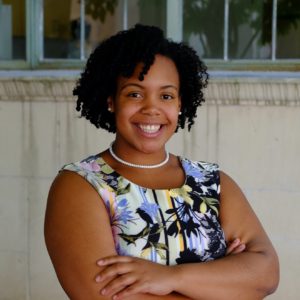 My dissertation offers the first comprehensive study of the Third World Women’s Alliance (TWWA), one of the largest multiracial feminist groups of the 1970s. Challenging dominant narratives that posit Black social activism as declining with the demise of national Black Power and Civil Rights era organizations, I highlight how Black women, in women of color spaces, continued fighting for the liberation of all oppressed groups well into the present. The group, which was founded in 1968 by black women in New York, expanded nationally to the West Coast with chapters in Seattle and the California Bay Area. The Rapoport Center’s Summer Fieldwork Grant supported my trip to Oakland, California, where I was able to collect new archival research from the Oakland Public Library. During my trip, I also conducted new oral histories with former TWWA members who shared their activist experiences after the 1970s. My dissertation traces the intellectual genealogies of a “women of color” feminist praxis rooted in the Women’s Liberation Movement(s) of the 1970s and still used today for political activity. I argue that Black women positioned themselves as anti-capitalists and connected their struggles to Latina, Asian, and Native American women in the U.S. and around the world. In addition to theorizing, TWWA members engaged in advocacy work that revolved around social equity, women’s reproductive health, criminal justice reform, and revamped educational curriculums. My project provides a new perspective on understudied feminists who pioneered coalition building for the Black women organizers that thrive today.
My dissertation offers the first comprehensive study of the Third World Women’s Alliance (TWWA), one of the largest multiracial feminist groups of the 1970s. Challenging dominant narratives that posit Black social activism as declining with the demise of national Black Power and Civil Rights era organizations, I highlight how Black women, in women of color spaces, continued fighting for the liberation of all oppressed groups well into the present. The group, which was founded in 1968 by black women in New York, expanded nationally to the West Coast with chapters in Seattle and the California Bay Area. The Rapoport Center’s Summer Fieldwork Grant supported my trip to Oakland, California, where I was able to collect new archival research from the Oakland Public Library. During my trip, I also conducted new oral histories with former TWWA members who shared their activist experiences after the 1970s. My dissertation traces the intellectual genealogies of a “women of color” feminist praxis rooted in the Women’s Liberation Movement(s) of the 1970s and still used today for political activity. I argue that Black women positioned themselves as anti-capitalists and connected their struggles to Latina, Asian, and Native American women in the U.S. and around the world. In addition to theorizing, TWWA members engaged in advocacy work that revolved around social equity, women’s reproductive health, criminal justice reform, and revamped educational curriculums. My project provides a new perspective on understudied feminists who pioneered coalition building for the Black women organizers that thrive today.
2019 Recipients
Alex Diamond — PhD Candidate, Sociology
Project Title — Human Rights and the Local Experience of the Colombian Peace Process
Research on peace processes has cast different kinds of rights discourses as playing a prominent yet controversial role in peace processes, recognized for their ability to protect vulnerable populations but also criticized for privileging those who have the power to define them, particularly in relation to private property. The peace process in Briceño, a village of 9,000 in northern Antioquia, Colombia, is a strategic site for evaluating the kinds of rights that are granted within peace processes and their effects on local communities. Before the 2016 peace agreement between the Colombian government and the FARC (Revolutionary Armed Forces of Colombia), Briceño was isolated from the formal state; its economy was based on coca cultivation and the FARC often served as the sovereign authority. During three months of preliminary fieldwork from May to August 2018, I found that Briceño’s transition to formal state control involved multiple and sometimes clashing human rights discourses and practices. The peace accords granted the right to unprecedented social investment in the region, including infrastructural development and a coca substitution program to help peasants transition to legal crops. However, these programs have been implemented unevenly and within a framework that emphasizes private property rights to the disadvantage of landless peasants who have seen the disappearance of traditional land tenure arrangements. Combined with the elimination of the coca economy, this has only exacerbated local inequalities. At the same time, local rights to territorial control have come into question, most notably with the potential incursion of Continental Gold, a Canadian company which has long owned the right to mine gold in the area but was previously prohibited from entering by the FARC. Most in the community fear the mine would destroy local livelihoods and the environment but doubt they will be able to stop it. My summer fieldwork will explore the kinds of rights that are emphasized within Colombia’s peace process. Through accompanying local leaders and development programs, I will seek to understand how these rights are negotiated and enacted within the local community and with external actors. Finally, I will interrogate how these rights affect structures of inequality and local experiences as a result of the peace process.
Sarah Eleazar — PhD Candidate, Anthropology
Project Title — Water and Politics of Deprivation and Resource Capture in Punjab
I will conduct my research in two neighboring villages, Chah Kalalanwala and Kot Assadullah, over the summer months to understand modalities of threats and vulnerability around access to water. Around 20 years ago, the aquifer supplying water to these villages was discovered to be heavily contaminated with industrial pollutants including heavy metals, fluoride, and arsenic. This led to bone deformities and other physical ailments in hundreds of children. Furthermore, since Christians are traditionally connected to stigmatizing labor, the impact of this pollution was experienced differently by residents of the Christian basti (colony) that straddles the two villages. I will conduct semi-structured interviews of families living in the two villages and specifically in the Christian bastito to see how the state response to crisis intersects with the concerns and practices of local communities. Participant observation in local churches, tea stalls, and other public spaces will allow me to closely examine relationships between the political subject and social life as they play out in the Christian basti and its Muslim neighbors. Since most of the water for household use is managed by women, I will conduct participant observation and unstructured interviews to see how they navigate through water technologies in order to feed and sustain their families. Following the pollution crisis, the residents of these villages, mostly subsistence farmers, could not use their land for agricultural purposes; in order to survive, they took up jobs in the same industries that had deprived them of their economic mainstay. In this context, human rights discourse provides an important lens to examine the relationship between income inequality and access to safe drinking water from. The government’s response to the crisis served to deepen a sense of precarity, a condition which continues to fester and reinforce existing systemic inequalities.
Iasmin Goes Aragao Santana — PhD Candidate, Government
Project Title — Why Do Governments Tie Their Hands? Natural Resources, Public Budgets, and Voter Demands
In 1854, Texas established the Special School Fund to provide the state with a public school system, using money from the lease of land and royalties from oil and gas extraction. This was the first sovereign wealth fund in history. Since then, Mongolia, Norway, Timor-Leste, and many others have created about 150 similar measures constraining how—and how much—revenue from non-renewable natural resources is saved or spent. This is surprising not only because Texas, Mongolia, Norway, and Timor-Leste have little in common, but also because there is limited evidence that these measures actually work. Despite their professed intention to save for future generations, increase public spending on neglected issue areas, decrease the dependence on natural resources, or stabilize the economy in times of need, they often lack transparency, increase revenue volatility, set unrealistic benchmarks, and fail to accomplish their goals. If tying hands has uncertain policy outcomes, why do so many governments do it? To explore this question, I will interview World Bank and IMF consultants in Washington DC, where they advise a number of resource-rich countries on how to set fiscal targets. It is important to understand what incumbents do with their money (and why they do what they do) because some allocation decisions are inefficient, leading to a waste in public resources, suboptimal social outcomes, and chronically underfunded issue areas. Tying hands has important implications for the transparency and accountability of the extractive sector in addition to the long-term impact of natural resource wealth on public budgets and social welfare.
Katie K. Rogers — PhD Candidate, Sociology
Project Title — Breaking the Grass Ceiling: Race, Class, and Gender Inequality in the U.S. Legal Cannabis Industry
This study investigates work inequality in the emerging multibillion-dollar U.S. legal cannabis industry. Many studies of drug markets focus on prohibition and criminalization, but less is known about the reverse process, posing the question: How do race, class, and gender impact the culture and stratification of a previously criminalized industry as it emerges into the legal economy? This project foregrounds the experiences of women in the industry, a neglected topic in drug market research. Specifically, it examines the popular claim that cannabis will yield unique opportunities for women in the paid-labor market. This multi-method study uses content analysis, in-depth interviews, and field research in dispensaries throughout San Francisco, California, to investigate women’s pathways, motivations, experiences, and interactions in cannabis spaces, as well as how cannabis is marketed to women. Findings will contribute to conversations on the scope and solutions of human rights agendas by examining cannabis legalization as a case of access to economic opportunity, a cornerstone of human rights. The U.S. war on drugs inflicted on onslaught of human rights atrocities on differently racialized communities (particularly Black, Native, and Latinx persons), leaving people deported, homeless, struggling to pay fines and fees, and fighting to wrest their children back from state protective agencies. Furthermore, survey data suggest women of color, men of color, and white women are underrepresented in the legal cannabis industry compared with their participation in the workforce. Such disparities will likely have long-term effects as the industry is projected to yield billions of dollars in revenue and create hundreds of thousands of new jobs. Recommendations will be tailored toward advocating for equitable race and gender representation in legal cannabis and the paid-labor market at large.
Shannon Malone Gonzalez — PhD Candidate, Sociology
Project Title — In Her Place: Policing Black Women Across Social Class
In my research, I examine how economic inequality influences black women’s interactions with police and resources for coping with police violence. I center black women’s experiences to understand how their social position within converging systems of inequality shapes police surveillance and violence. My dissertation project is a mixed-methodological study that uses surveys, observations, and interviews. This summer, I am conducting 10–15 interviews additional interviews and ethnographic observations of community events in my second field site, Austin, TX.
2018 Recipients
Riad Azar — PhD Candidate, Sociology
Project Title — Boomtown Poison: Political Culture Under the Shadow of Lead Poisoning in West Texas
How do people think and feel about environmental inequality? How are these thoughts and feelings shaped by a shared understanding of the right to a clean environment? How do political orientations shape (and are shaped by) the ways in which people think and feel about contamination of the environment in which they live? Drawing upon ethnographic fieldwork in a highly contaminated community located in rural west Texas, this project seeks to answer these questions by examining the ways in which the local residents of Boomtown, TX (Pseudonyms are used for confidentiality) think, feel, and act on (or fail to act on) the pollution of their water. An oil boomtown of the early 20th century, the population of Boomtown has steadily declined over one hundred years from a height of 40,000 residents in 1916 to the current population of 2,000. Save for a small boom in the 1970s, the crumbling infrastructure, lack of jobs, and contaminated water containing twenty-eight times the federal limit of lead are consequences of socioeconomic transformations characteristic of rural America. The United Nations, in resolution 64/292 passed on July 28th, 2010, enshrined the right to clean drinking water as fundamental to the realization of human rights more broadly. My proposed research ethnographically documents a contaminated community and seeks to show how contamination shapes local and national political cultures, reinforces economic inequality, structures the recognition of poverty, and reproduces itself through schemas of credit and blame. In order to solve these human rights challenges, it is vitally important to understand the production and reproduction of political culture in the intersections between environmental contamination and economic inequality.
Alex Diamond — PhD Candidate, Sociology
Project Title — What does Post-Insurgent Reincorporation Look Like? Social Inclusion, Governmentality, and Rural Development in Colombia’s Peace Laboratory
The 2016 peace agreement between the Colombian government and the FARC (Revolutionary Armed Forces of Colombia) put an end to a half-century insurgency while also beginning the national reincorporation of territories like Briceño that were previously under FARC control. In Briceño, as in many other areas, the guerrillas had acted as the de facto state, keeping order, maintaining roads, organizing the local coca-based economy, and even protecting the environment from the entrance of multinational mining companies eager to exploit its gold. The state’s assumption of governance functions is part of a process that also includes the definition of its obligations to Briceño’s campesinos and indeed their very citizenship. The peace accords included provisions for rural development and coca substitution programs designed to transform rural economies and invest in development in rural Colombia that has long been lacking. What space have these programs opened for the construction of different ideas of citizenship rights and social and economic inclusion for rural populations that have been historically marginalized? On the other hand, how and to what extent does the process of reincorporation also involve a project of political subordination, particularly around issues of territorial rights like gold mining? Through studying the implementation of the peace accords, as well as local struggles over the potential incursion of multinational gold mining companies, I will try to understand processes of citizenship construction and political domination in real time. This research will offer a case study of how marginal regions are incorporated within states, the often-hidden work done by programs like the peace accords, and how local actors can operate within these periods of transition to put forward different conceptions of citizenship, social rights, and economic justice.
Eddie C.H. Hsu — PhD Candidate, Ethnomusicology
Project Title — Becoming National Cultural Property: Preservation of Aboriginal Paiwan Flutes and Cultural Rights in Contemporary Taiwan
My project primarily deals with the structures of inequality in cultural rights by analyzing the national preservation and transmission project of two-pipe nose flutes (lalingedan) and mouth-blown flutes (pakulalu) of the Aboriginal Paiwan group in Taiwan. During this summer, I will conduct my fieldwork in southern Taiwan to interrogate the various repertoires those Aboriginal musicians play in different settings, which, in contrast to the government-funded “cultural performances” that feature authentic Aboriginal arts, may involve various elements and stylistic practices that are “hidden” within this national preservation and transmission project. Analyzing these repertoires will also allow me to explore the ways in which Aboriginal musicians enact their rights to artistic production and participation in relation to the constraint of national preservation and transmission project. I expect this ethnographic contribution to highlight the role of music in mediating tensions between the state’s practices/ideologies of cultural heritage and individual rights to artistic production and participation in Taiwan today, and shed new light on the preservation of intangible culture heritage and many indigenous revival movements across the world.
Alexandra Lamiña — PhD Candidate, Latin American Studies
Project Title — Feminist indigenous geo-ethnography for understanding the urban indigenous migration in the Ecuadorian Amazon region
In the Ecuadorian Amazonia, indigenous urban migration is a poorly understood phenomenon. Using an innovative and pioneer feminist indigenous geo-ethnography approach, this project aims to explain how Indigenous peoples face global urbanization by pulling apart westernized and mainstream perspectives. Fieldwork will first take place in Puyo during Summer 2018. This project will creatively combine critical geo-ethnography, indigenous mapping, and participatory research for co-learning and co-producing knowledge about the indigenous quotidian mobilities in cities. This approach will help to inform how indigenous peoples face severe factors that affect their human rights in urban settings. For example, socioeconomic inequality, racial and cultural discrimination, gender violence, and economic exclusion that impact the everyday indigenous livelihoods. The current invisibility of indigenous migration in urbanization has severe political and policy-related implications due to its complexity and ambivalent role in the politics of indigeneity, identity, and representation. Human rights and fundamental freedoms of indigenous people requires that indigenous people be actively involved in developing and defining measures of urban sustainability. Better understanding indigenous’ mobilities and their spatialities are crucial because by their migratory experience and epistemology can advance “Right to the City” discussions and enable politics that are invisible in dominant regimes and excluded from hegemonic knowledge.
Nathalia Sandoval Rosa — PhD Candidate, Government
Project Title — Law or not law? Regulating ethnic rights under the extractive boom in Latin America
Why have Latin American indigenous peoples advocated compliance with their right to be consulted before authorizing or launching extractive projects on their land –but rejected the national codification of that right? Drawing from a comparison between groups in Colombia and Bolivia, I study the mechanisms that explain why states and extractive companies have advocated for a standardized regulation of the right to prior consultation and the right to free, prior, and informed consent in the region, while several indigenous organizations have rejected it. This summer I will start collecting original data in Colombia through semi-structured interviews, and content analysis of archival materials. My research contributes to explain the circumstances under which the regulation of indigenous rights risks to reproduce the unequal distribution of power that marginalize indigenous peoples in the decisions about the use of their land. Thus, rather than focusing on the emancipatory or limited nature of human rights, the project understands their potentiality as a variable that depends on the specific interactions between states, industries, and marginalized communities.
Kenza Yousfi — PhD Candidate, Anthropology
Project Title — Where is our phosphate? Walling of natural resources and distributive justice in the Western Sahara
The Saharan wall emerged from the Moroccan-Saharawi war in the Western Sahara. The conflict started by a national liberation movement that aims to grant a self-determination referendum for the local population—the Saharawis. The UN brokered a ceasefire agreement in 1991 for a war that lasted for sixteen years, whereby Morocco annexed the territory east of the wall, Saharawi military controlled the area east of the wall, in addition to managing the Saharawi refugee camps in Tindouf, Algeria. The current wall was built over eight years in different phases by the Moroccan army from 1980 to 1986. The first wall encircled an important space called the Useful Triangle; an area encompassing three elements: the phosphate mines of Bou Craa, the longest conveyor belt in the world, and the port of Laayoune. Since the 1986, the question of the phosphates in the Western Sahara has been linked to the wall as a defensive structure enabling Morocco to illegally exploit natural resources outside of its internationally recognized border. The Saharawi population under Moroccan control engages the relationship between the wall and the phosphates by trying to negotiate the terms of Morocco’s resource extraction. It calls for the Moroccan state to redistribute its phosphate financial returns to the Saharawis, instead of arguing for the illegality of the extraction. Yet, on the eastern side of the wall, the Saharawi military and camp-based NGOs negotiate with other states and companies buying Saharan phosphates from Morocco by utilizing the regulatory frame of international law. In both cases, the phosphates emerge as a resource in the making that is closely related to other projects of state power. In these claims, I ask 1) how walling has generated a larger infrastructure of the phosphate, and 2) how does the Saharawi population see the effect of walling (and the wall) in diminishing their rights to claim natural resources? By centering this question, my research will explore how the wall facilitates makings of natural resources and the use of various legal and modern governance practices to form populations’ particular governance demands and understandings of the phosphates.
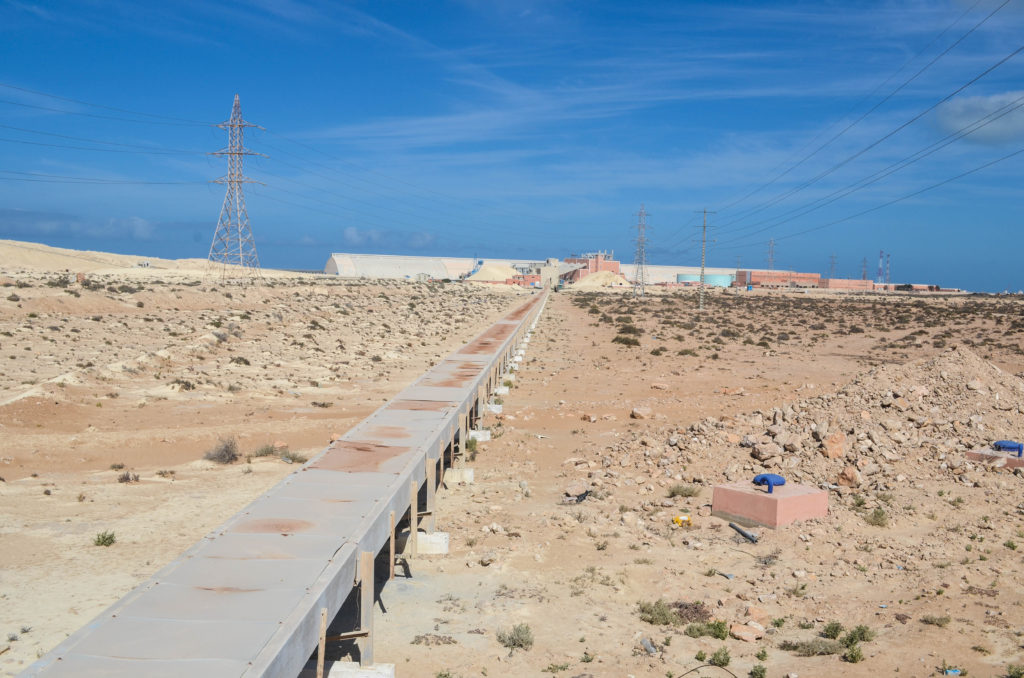
2017 Recipients
Ana-Isabel Braconnier — PhD Candidate in Latin American Studies, Teresa Lozano Long Institute for Latin American Studies
Project Title — Where does the funding come from? An assessment of the indigenous strategic litigation in Guatemala
In Guatemala in 2014, poverty reached 60%, of which 52% was indigenous population according to the World Bank. This structural situation places the country on the list of beneficiaries for international cooperation to development. Several projects have been implemented within the judicial field to promote human rights, and address ethno-racial discrimination. Local indigenous organizations and litigants have carried out significant work, particularly throughout strategic litigation, and have contribute to open the scope of indigenous collective rights and material redistribution. However, currently, some key international agencies are withdrawing from the arena, leaving an open question about the future of indigenous strategic litigation. To what extent indigenous legal organizations still depend on international funding to carry out strategic litigation? Will this scenario have an effect on an eventual indigenous “Rights Revolution” in Guatemala? To address this question, I will explore Fundacion Rigoberta Menchu Tum and Asociacion de Abogados y Notarios Mayas’ legal work since the signature of the Peace Accords in 1996. From collecting public interest judicial cases regarding indigenous rights and conducting interviews with stakeholders, I will trace the funding sources and conditions, the legal agendas, and the projections behind each case. The results of this exploratory fieldwork research will contribute to better approach the relationship between legal activism, economic inequality and indigenous rights in a country such as Guatemala.
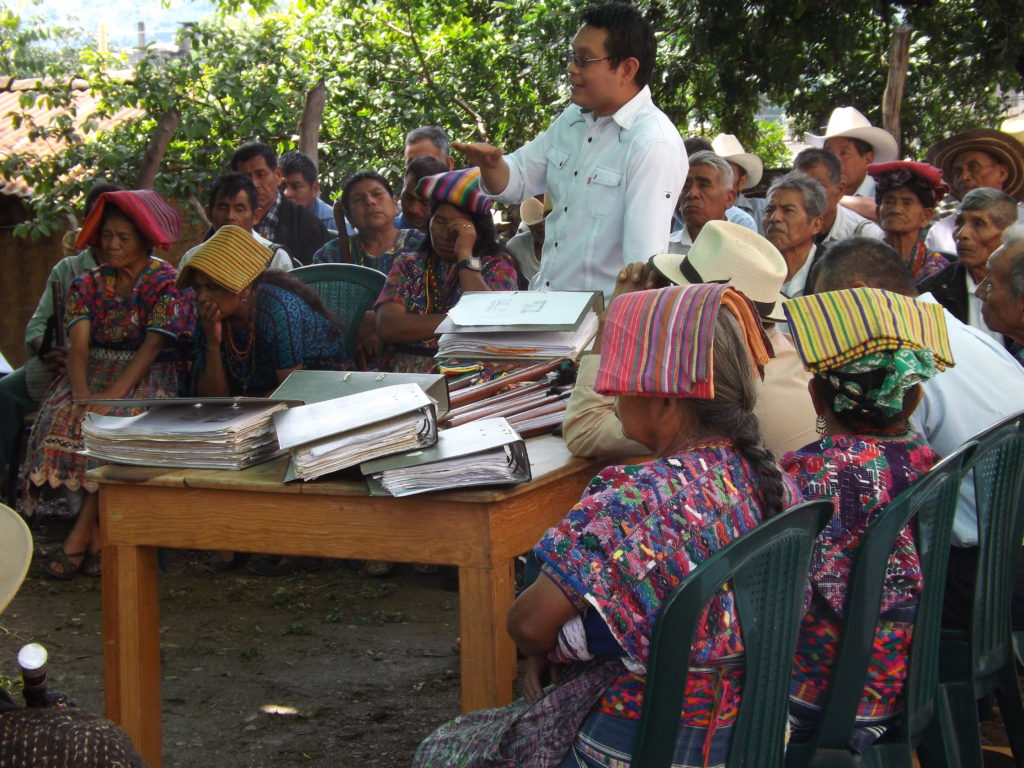
Vrinda Marwah — PhD Candidate, Department of Sociology
Project Title — Reproducing the State: Women Community Health Workers in Delhi, India
In 2005, the Indian government began its flagship program the ‘National Health Mission’ to establish a de-centralized, community-owned health delivery system that would prioritize under-served regions and populations. Maternal and child health were spotlighted in this plan, and the bulk of the responsibility to improve outcomes fell to a cadre of women reproductive health workers created especially by the Mission. These women were called ASHAs i.e. Accredited Social Health Activists. They were to be ‘remunerated volunteers’, tasked with connecting other women from their communities to the public health system. ASHAs would track pregnant women; supply them with the health checks, medication and counseling they needed; and when it was time, ensure that they delivered in an institution instead of at home. Today, India has over 900,000 ASHAs. In a country that spends only 1.1% of its GDP on its ailing public health system and that has otherwise neglected its primary health care, the ASHA program presents a notable exception. Since the implementation of this program, for instance, both institutional deliveries and immunization rates have risen. As such, ASHAs make a critical contribution to ensuring the delivery of health services to the country’s poorest and most marginalized. As frontline workers for the state, ASHAs are recruited on ethnicized governmental categories of General, Scheduled Castes, Scheduled Tribes, and Other Backward Classes. However, as reproductive health workers, ASHAs perform intimate bodily labor that requires them to reach out to women from caste backgrounds other than their own. Here, as a rationalized street-level bureaucrat, ASHAs must access and even regulate the private life-world where caste boundaries still hold sway. In these interactions, when and how does the role of the ASHA triumph over her caste, and vice-versa? By centering this question, my research will explore how caste boundaries matter for—and are managed by—working class women implementing India’s reproductive health policy.
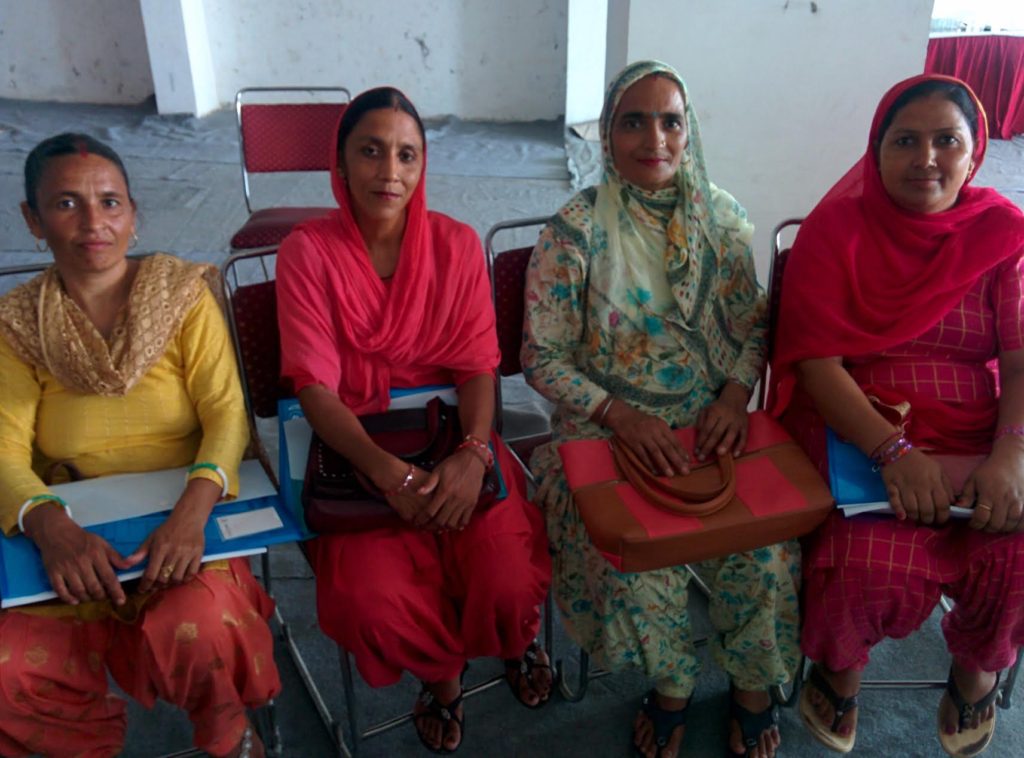
Beth Prosnitz — PhD Candidate, Department of Sociology
Project Title — Gendered In/equalities: Women’s Property Ownership in Post-conflict Nepal
Anti-discrimination laws are meant to ameliorate social inequalities. Yet, might these sorts of progressive laws also lead to negative social outcomes? In this study I will look at the effects of women’s property rights laws on women’s access to property ownership in Nepal. Women’s property rights have been politically important in Nepal since the 1990s. In the post-conflict environment, the Nepali government has taken measures to increase women’s access to property, including the exemption of women land owners from land taxes. Today, women in an estimated 19 percent of households in Nepal own land. However, barriers to women’s property ownership remain. I examine what might hinder women’s ability to own land, in spite of gender egalitarian inheritance laws. Moreover, I ask how caste might shape women’s access to property, and how legislation for gender justice might potentially re-inscribe caste power.
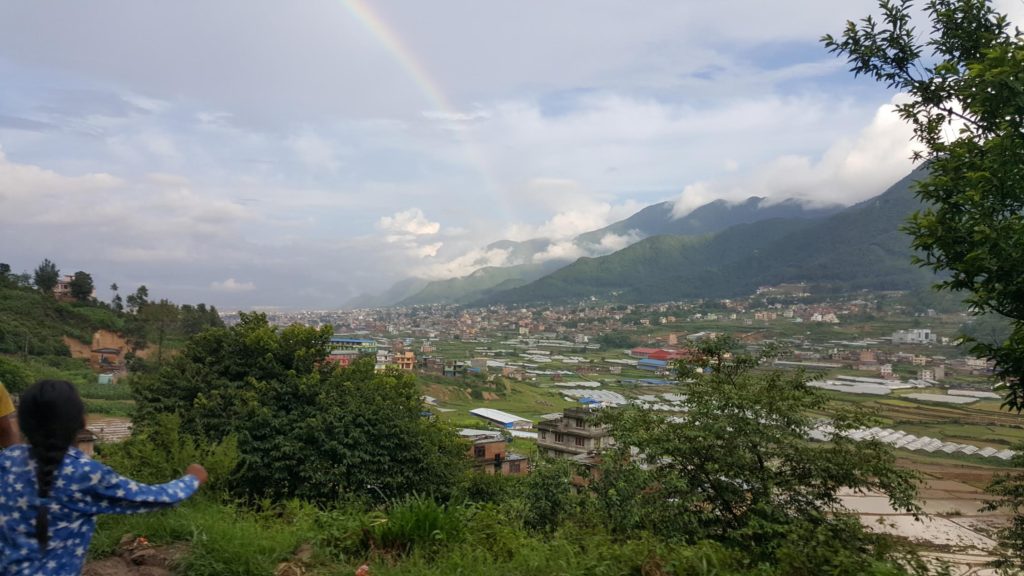
2016 Recipients
Adam Aziz — PhD Candidate in French Literature, Department of French and Italian
Project Title — Exploring the Intersection of Sexuality/Sexual Health and Economic Marginalization of LGBTQIA Tunisians in Post-Revolution Tunisia
Galvanized by the hopeful optimism occasioned by the 2011 Tunisian Revolution, LGBTQIA Tunisians and their allies began to organize themselves into structured NGOs, deploying grassroots strategies to mobilize and develop programs towards improving the conditions of the often-marginalized LGBTQIA community in the country. New LGBTQIA and human rights organizations emerged exponentially in the capital, Tunis, between 2011-2015 to respond to growing calls for positivist change and furnish a safe space for queer Tunisians to mobilize. What initially began as disconnected streams of dissent rapidly converged into an interconnected series of movements that envisioned active civic participation and communitarian intervention as key strategies to heighten LGBTQIA visibility. My research project traces the socio-political mobilization of Tunisian LGBTQIA organizations, in particular Shams, exploring how they assiduously deploy galvanizing strategies of civic participation and communitarian intervention, via publicly available sex education programs, economic re-integration initiatives, and support groups, to focus on issues of sexual health, sexual violence, and economic empowerment. These grassroots programs ultimately narrate the LGBTQIA cause within a discourse on human rights, striving to show that LGBTQIA individuals are as much full-fledged citizens of Tunisia as the rest of Tunisian society, and thus cannot be willfully excluded from economic, socio-cultural, and political spheres of activity. These efforts exemplifying diversified methods of LGBTQIA grassroots activism, I argue, present the right to sexual health and economic egalitarianism as inalienable components of human rights and civil liberties.
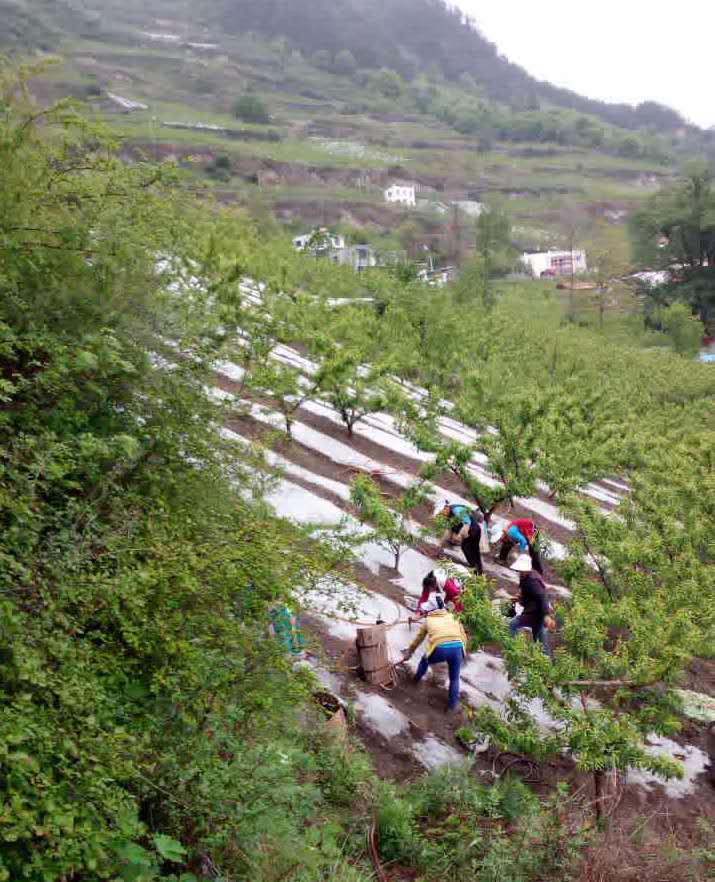
Ruijie Peng — PhD Candidate, Department of Sociology
Project Title — Labor and Power: Rural Women’s Changing Roles in Productive and Reproductive Work in China
I will conduct preliminary fieldwork for my dissertation in Aba Prefecture, the center of China’s Qiang population in Sichuan province. Located in southwest China, Sichuan is one of the largest sources for rural migrant labor in China. In the mid-2000s, the local government at the county level started to implement Socialist New Countryside Schemes aimed at accelerating economic development and addressing unequal access to social welfare in the villages. Especially after the major Wenchuan Earthquake in 2008, the local government invested heavily in rebuilding and reconfiguring villages to improve their aesthetics and position them for ethnic tourism. As a result, rural women started to take center stage in creating an infrastructure and small businesses catering to tourists. My field site offers unique opportunities to examine how minority rural women’s labor participation relates to the production and reproduction of inequality. Rural women in my case studies engage in daily decision-making of economic priorities (food production, vending, odd jobs in townships etc.), income allocation, care work and short and long-term mobility while constantly negotiating traditional gendered expectations and responsibilities. I propose to use ethnographic research methods to examine the strategies these rural minority women employ to address and overcome everyday forms of inequality, as well as the limits and possibilities neo-liberal development projects have for addressing urban-rural, gender and income inequality.
Nathalia Sandoval Rojas — PhD Candidate, Department of Government
Project Title — Do the Courts Actually Help the Poor? The Case of Argentina
Under what conditions do national courts’ decisions on social and economic rights affect inequality? Courts such as the Supreme Court of Argentina produce a large number of decisions enforcing social rights enshrined in the International Covenant on Economic, Social and Cultural Rights. While these decisions should in principle reduce inequality in access to the social goods protected by these human rights, so far there are few indications to that effect. What is more, some scholars have shown cases where the impact of courts’ decisions on inequality is negative. To explore this puzzle, this summer I will conduct preliminary fieldwork in Argentina. There, I will meet with judicial assistants, recurring litigant organizations, and scholars who study poverty. I also will visit the Supreme Court and INDEC (Instituto Nacional de Estadística y Censos). I will explore the theoretical and methodological underpinnings of studying how Argentina incorporates the Supreme Court’s orders about egalitarian access to social goods and examine the policies’ outcomes. The research I will conduct this summer will be crucial to my dissertation proposal, and will shed light on the way human rights litigation impacts inequality in the access to social goods.
Ricardo Velasco — PhD Candidate in Latin American Studies, Teresa Lozano Long Institute for Latin American Studies
Project Title —Networks of Human Rights, Memory, Solidarity, and Inclusive Citizenship in Transitional Colombia
This project proposes a critical analysis of socio-cultural practices and processes of memory and human rights activism emerging in transitional Colombia, specially among cultural and artistic collective working in the Pacific coast region. It focuses on the tensions, antagonisms and political possibilities of the multiple narratives and representations of the violent past channeled through cultural and artistic practices. This analysis aims at understanding the type of interventions into the political field that these processes make possible, in articulation with the struggles for inclusion and equality among black communities and other ethnic groups across the Pacific coast region-territory. The study is particularly concerned with the political potential of art and the use of new communication technologies among human rights activists, cultural collectives and victims’ organizations for: 1) contesting or subverting official post-conflict and national reconciliation narratives; 2) denouncing historical institutional abandonment and socio-economic inequality; 3) building solidarity, social and environmental justice networks across other sectors of the citizenry; 4) rearticulating, mobilizing or making problematic the notions of territorial autonomy, cultural rights and citizenship in a post conflict nation; 5) producing knowledges and socio-cultural worlds “otherwise”, by creating organizational and socio-cultural processes that constitute alternatives to state-capitalist driven socioeconomic agendas.

